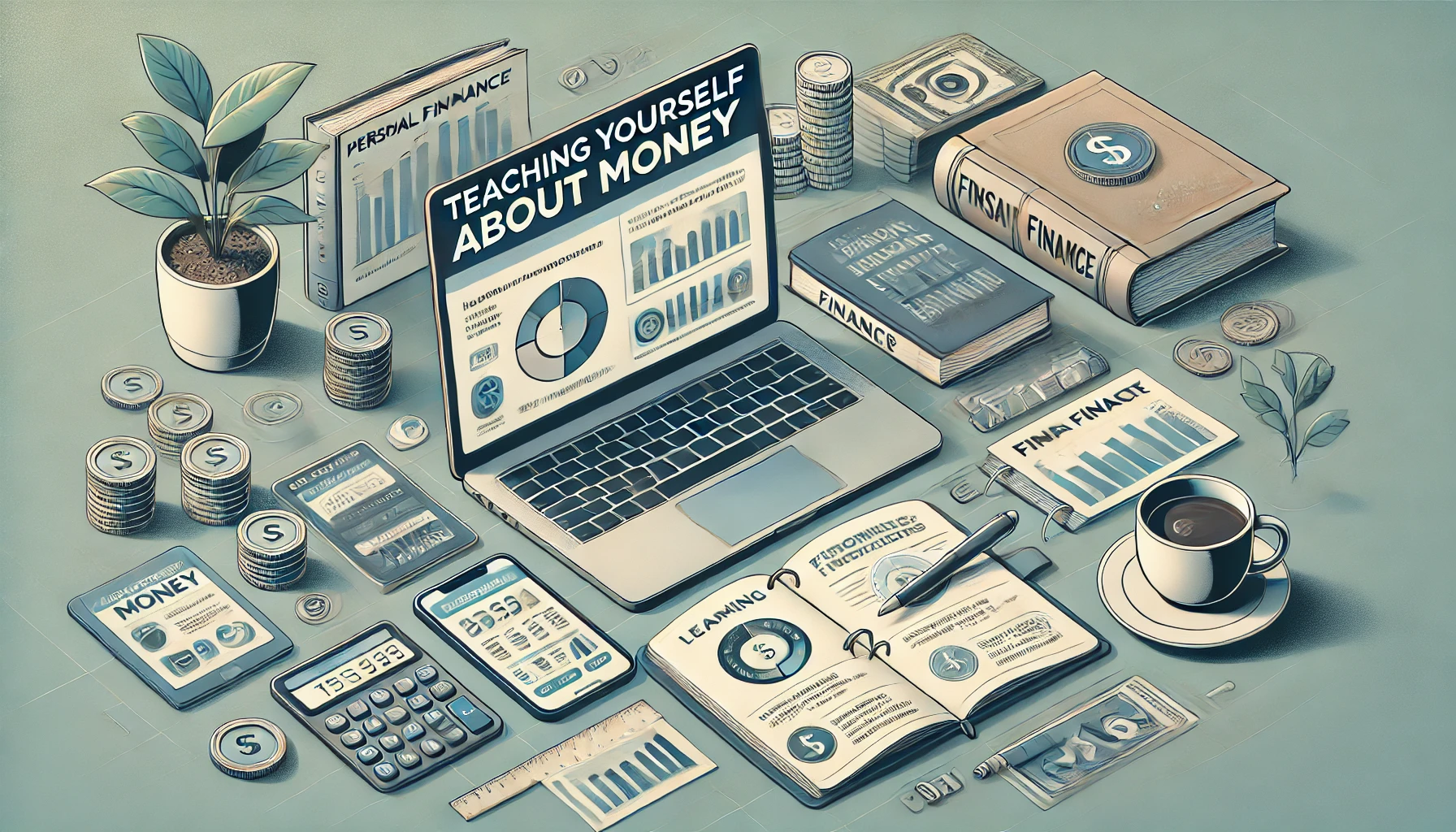Think you’re “bad with money” because you hated math in school?
Good news: you don’t need to love numbers to master your finances.
Personal finance isn’t about solving complex equations. It’s about learning simple, real-life skills like budgeting, saving, avoiding debt, and making smart choices with the money you already have.
If you’ve ever felt confused, overwhelmed, or left out of financial conversations, this article is for you. We’ll walk through how to teach yourself about money step by step, with no stress and no math degree required.
Why Learning About Money Is So Important
Most schools don’t teach personal finance—so if you feel behind, that’s not your fault. But it is your responsibility to learn now.
Understanding how money works helps you:
- Avoid debt and financial stress
- Save and invest confidently
- Make smarter life decisions
- Gain peace of mind and freedom
The best part? You can start learning today, at your own pace, for free.
Step 1: Start With the Basics
You don’t need to jump into investing or taxes right away. Start with everyday topics that affect you the most:
Topics to begin with:
- Budgeting (how to plan your money)
- Saving (how to build a cushion)
- Debt (how to avoid or eliminate it)
- Banking (checking, savings, interest)
- Credit (how it works and why it matters)
💡 Goal: Learn just enough to take your next step—not everything all at once.
Step 2: Choose Your Learning Style
Not a fan of textbooks? No problem. There are many ways to learn about money:
🎧 Podcasts (for listening while walking or cleaning):
- The Dave Ramsey Show
- BiggerPockets Money
- Afford Anything
- Smart Passive Income
📺 YouTube Channels (for visual learners):
- Graham Stephan
- The Budget Mom
- The Financial Diet
- Debt Free Millennials
📚 Books (for in-depth understanding):
- The Simple Path to Wealth by JL Collins
- I Will Teach You to Be Rich by Ramit Sethi
- Your Money or Your Life by Vicki Robin
📱 Apps and Blogs:
- NerdWallet
- Mint
- YNAB (You Need A Budget blog)
- Clever Girl Finance
Try different styles until you find what clicks with you.
Step 3: Learn in Small, Consistent Doses
You don’t need to binge-learn. Just 10–15 minutes a day is enough to build confidence.
Try this:
- Watch one YouTube video per day
- Listen to a podcast on your commute
- Read 2 pages of a finance book before bed
- Follow personal finance creators on social media
The goal is to make learning a habit, not a chore.
Step 4: Apply What You Learn Immediately
Knowledge is only useful if you use it.
Each time you learn something, ask:
“How can I apply this today?”
Examples:
- Learned about budgeting? Create a simple plan.
- Heard about emergency funds? Open a savings account.
- Read about credit? Check your score or request a report.
Small actions build momentum—and action leads to confidence.
Step 5: Ignore the Fancy Jargon
The finance world loves confusing terms—but you don’t need to know them all.
Focus on understanding the concept, not memorizing the lingo.
Example:
- “Compound interest” just means your money earns money
- “Assets” are things you own
- “Liabilities” are things you owe
If something sounds complicated, look for a simpler explanation or ask AI (like me!) to break it down.
Step 6: Track Your Progress and Wins
Celebrate your growth, even if it feels small.
Track:
- New terms you learned
- Habits you’ve improved (like saving weekly)
- Financial decisions you made with more confidence
This reminds you: you’re learning, improving, and taking control.
Step 7: Don’t Compare Your Journey to Others
Everyone learns about money at a different pace. Don’t get discouraged by:
- Friends who seem ahead
- Social media “success stories”
- Past financial mistakes
Your only competition is the person you were yesterday. Keep going.
Step 8: Create a Simple Financial Plan
Once you’ve learned the basics, build a personal system that works for you.
Include:
- A budget or spending plan
- A savings habit
- A debt payoff plan (if needed)
- A plan to start investing (even small)
You don’t need to be perfect—just intentional.
Final Thought: You’re Smart Enough to Master Your Money
You don’t need to love math or be a finance expert.
You just need curiosity, consistency, and a willingness to start.
Learning about money is one of the most empowering things you can do for your future—and the best time to start is now.
One concept. One video. One habit at a time.
